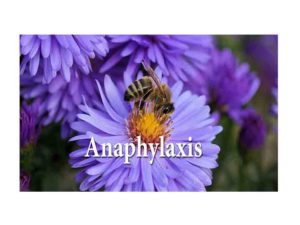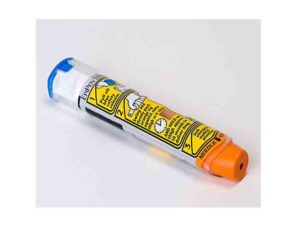Avoidance of the offending substance is important for prevention
Anaphylaxis Prevention?
Anaphylaxis is a severe, life-threatening allergic reaction. Prevention of anaphylaxis is the most important aspect of management. The term anaphylaxis was first proposed by physiologist Charles Robert Richet and Paul Portier in the year 1902. “Ana” means “against” and “phylaxis” meaning “protection”. Urgent attention is needed to save the life of the individual who is suffering from anaphylaxis.
Prevention of Anaphylaxis
It is extremely crucial to alert all the time and follow few preventive measures to reduce the risk of anaphylaxis.
The following can help in anaphylaxis prevention:
- Identify any triggers – Attend any allergy clinic to know what the substances you are allergic to. This will help you to plan your management strategy.
- Avoid triggers whenever possible – Once you identified the possible factors for triggering anaphylaxis then you can take avoidance measures to reduce the risk. For example if you are allergic to certain food then you have to shop very carefully.
- Carry your adrenaline auto-injector at all times with you– use it in emergency situation.
Avoidance of the offending agent is very important. One must know the causative food to which he is allergic. Always check twice while eating in restaurants and in social events.
Follow these steps:
-
Know what you’re eating and drinking. Always read the food labels while you eating something.
-
If you have already had a severe reaction/anaphylaxis, wear a medical alert bracelet or necklace that will alert others and you have a food allergy.
-
Have an action plan ready. Always have a action plan of your Anaphylaxis. This action plan will be prepared by your Allergist.
-
Always have your Epinephrine / Adrenaline Autoinjector with you.
-
Do not hesitate to inject intramuscular adrenaline / autonjector even you are in doubt.
- Always attend hospital even the symptoms get improved after taking adrenaline autoinjector
If your child has allergy/anaphylaxis, you must follow few steps to ensure your child is safe:
- Always notify key people about the child’s allergy/anaphylaxis. Inform your child care providers, school personnel, parents of your child’s friends and other adults who regularly interact with your child. Tell them that anaphylaxis is a life threatening form of allergy which require urgent intervention to save life of the child.
- Explain the anaphylaxis symptoms to persons who spend time with the child.
- Have a written action plan of Anaphylaxis. This plan should include the appropriate management strategies to care the child in emergency case of anaphylaxis. One copy of the plan must be given to school authority.
- Have your child wear a medical alert bracelet or necklace to display that he/she has Food Allergy.




